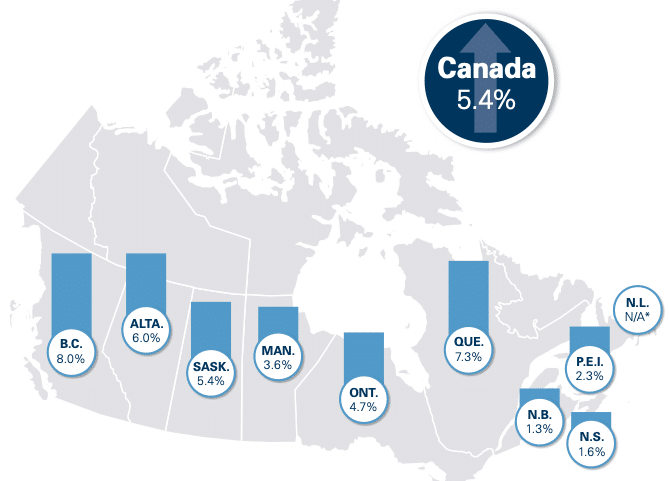While most western provinces bucked the financial turbulence of 2020 caused by the COVID-19 pandemic to record above average farmland values increases, average increases in the Maritimes were weaker due to the dry growing season, the annual Farm Credit Canada (FCC) Farmland Values Report released on March 15, says.
The average value of Canadian farmland increased by 5.4 per cent in 2020, slightly more than the 5.2 per cent increase reported in 2019, the report says.
Regional breakdown:
- British Columbia rose eight per cent
- Quebec increased by 7.3 per cent
- Alberta recorded a six-per-cent increase
- Saskatchewan increased 5.4 per cent
-
Irrigated land in the southern region, with its concentration of potato processing facilities, saw an average 7.6 per cent value increase
-
- In Ontario, average farmland values increased by 4.7 per cent
- Manitoba rose 3.6 per cent
- Prince Edward Island reported an increase of 2.3 per cent
- Nova Scotia’s increase was 1.6 per cent
- New Brunswick had a 1.3-per-cent increase
Farmland values across the Prairies were mainly influenced by tenants purchasing land from landlords, neighbour-to-neighbour sales, producers buying or selling land to gain operational efficiencies and family farm purchases to support succession plans, the report notes.
Weather played a significant factor in New Brunswick and Nova Scotia, as well as other parts of the Atlantic provinces in 2020. The region experienced the worst drought in decades during the critical growing season, which significantly diminished the value of cash crops, as well as created hay and forage shortages.
In many areas of New Brunswick, there was a limited number of farmland sales, the report says. The potato industry was affected by the uncertainty caused by the pandemic, but demand for potato land showed some underlying strength.
P.E.I.’s potato industry was affected by the pandemic in 2020 due to uncertainty surrounding demand. As a result, the planting season was not consistent across the province, as many producers tried to hedge against potential losses due to the pandemic, the report notes.











